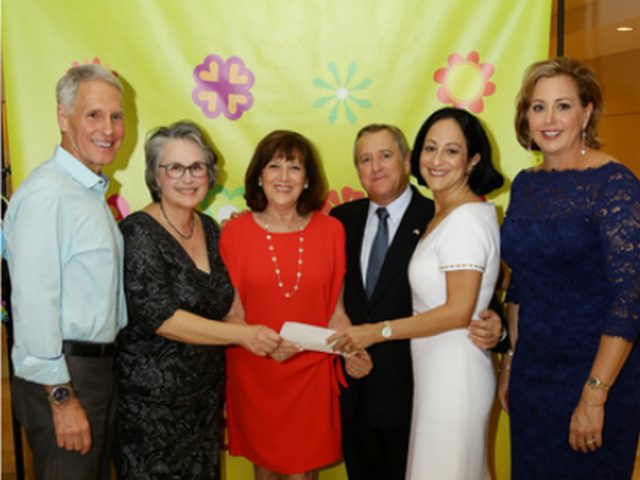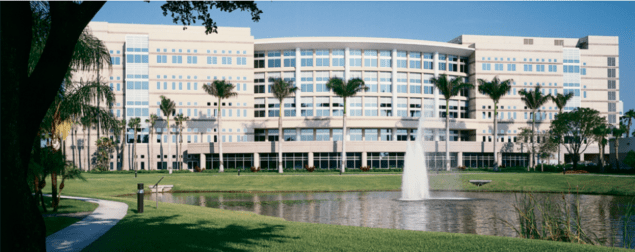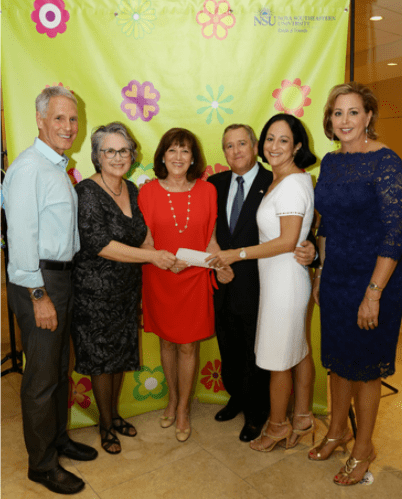11
In 1994, the Florida Legislature passed the Holocaust Education Bill mandating that Holocaust Education be taught in our schools so that students can learn what happens from prejudice, racism, and stereotyping. They wanted students to know what it means to be a responsible and respectful person, so as to “encourage greater tolerance in our society to protect our democratic values.”
At Nova Southeastern University’s Alvin Sherman Library, Craig and Barbara Weiner have created the Holocaust Reflection and Resource Center. It is an educational museum that permanently exhibits numerous WW2 artifacts, has over 600 Holocaust related books and reference material, three computers for research, as well as a vast number of visual displays. It also houses the Steven Spielberg Shoah Foundation database.
Many of us know a few of the historical facts about the Holocaust. We know, for example, that roughly 11- 12,000,000 people were either murdered, starved to death, or died due to inhumane conditions leading to life taking diseases, of which 6,000,000 were Jews (representing 2/3 of all Eastern European Jewry). We know that you didn’t have to be “old” to be murdered because 1,500,000 of those that died were little children. We also know that you didn’t have to be Jewish to suffer the wrath of the labor camps or the death camps. In fact, you could have simply been black, a Jehovah’s Witness, gay, handicapped, an intellectual, a Priest, a Rabbi, a political opponent, or, or, or. Death, brutality, and the dehumanizing of people knew no boundaries. However, the Holocaust teaches us more than this. The Holocaust teaches us, in a vividly clear way, that there are LESSONS to be learned from the Holocaust. Lessons that we ALL- both adults and youngsters, need to learn.
Just as the perpetrators and collaborators did during the years prior to 1945, we also have “choices” to make every day of our lives. Whereas the collaborators chose to bully and intimidate and squeal on their neighbors and so-called “friends”, resulting in their imprisonment and often death, many of our students today are also bullying and intimidating their so-called “friends”, mostly through social media. While some may think this is innocent “fooling around”, be assured that to the one at the receiving end of this bullying, it is FAR from innocent “fooling around”.
This is where Holocaust education comes in. Teaching the students “about” the Holocaust is unquestionably important; however, teaching them to learn FROM the Holocaust is equally important. It is through the LESSONS to be learned through Holocaust Education that we can all see first hand what hatred, bigotry, racism, anti-Semitism, and prejudice can lead to. Can we learn to teach our children not to be “followers”, or “pretend” that they “didn’t know what was going on” as many claimed after the war, or can we teach them to be leaders – to stand up – to do the right thing, so that bullying and hatred can be put to a stop? Can parents learn to set a better example for their own children by not screaming and fighting with umpires at a little league game just because of some questionable call? Can we, as adults, teach our youth that it is tolerance, respect and understanding of others – no matter their religion, or skin color, or sexual orientation, that will lead them to the success in life that we all want our children to achieve? THESE are our challenges as parents.
THESE are the lessons we can all learn from the Holocaust. Tolerance- Respect for others- Understanding – Patience- It are these that will give our youth the examples to follow in order to achieve what they all want out of life, and it is through the “lessons” of the Holocaust that we can help our young people learn these life’s lessons.
The Craig and Barbara Weiner Holocaust Reflection and Resource Center is open free of charge to the public seven days a week during all library hours.
For further information : www.Holocausteducationfund.com; or
https://sherman.library.nova.edu/sites/hours/








